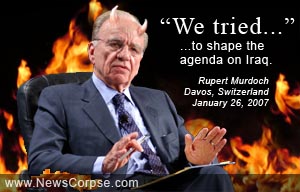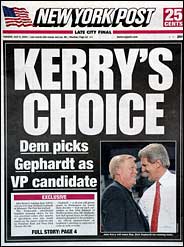Now that the first ever YouTube debate is completed, can we please promise not to have any more?
If you separate out the candidate’s answers and overlay the questions in text, the debate was no better or worse than any other debate. The participation of YouTube added nothing positive to the format or the content.
Since all of the videos broadcast were pre-selected by CNN, this could hardly be characterized as promoting the voice of the people. There were probably considerations by the CNN judges that included such irrelevancies as humor, entertainment value, charisma, and controversy. That is not an appropriate basis for engaging prospective occupants of the White House.
What’s worse, the gimmickry of this format is notable for whom it excludes. For instance:
- Any questioner that doesn’t have a video camera or video skills.
- Anyone who is uncomfortable performing on video or lacks public speaking skills.
- All of those without Internet access or who don’t know how to upload files.
- Internet users who are not registered with YouTube and don’t want to be.
This doesn’t seem like a format that encourages participation from a cross-section of America. If it was their purpose to produce a debate that was representative of the population, they failed.
What they succeeded at was promoting YouTube and it’s corporate parent, Google. The program was a two hour American Idol style commercial for a business that has a broad portfolio of vested interests in media and politics. CNN is partnered with Google who’s search engine is featured on their web site. And all of the political players on the stage have potential for benefiting Google’s regulatory agenda.
A far better experiment along these lines would have been a blog powered debate hosted by a broad-based and open site that allowed for more diverse and less moderated (or community moderated) participation. If CNN had such a site, I would not have objected to them using it. But since they don’t, something along the lines of the Huffington Post might be interesting.
Unfortunately, I don’t have much hope that that will occur. It’s a little too far off the radar of old media players like CNN. So we’ll have to endure these spectacles for some time to come. And of course, the Republicans are going to get the YouTube treatment next.



 At the meeting, Murdoch likely insisted that he has
At the meeting, Murdoch likely insisted that he has  This is just
This is just